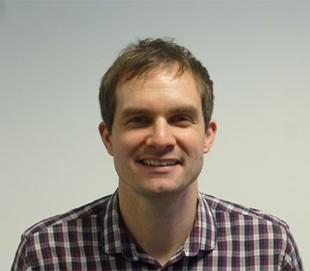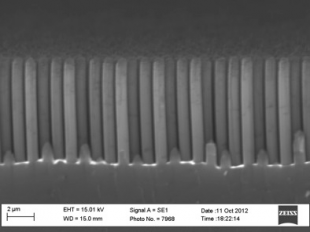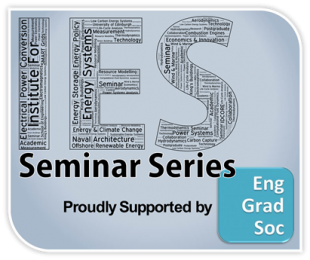Location:
Alrick Building, Classroom 10
Date:
Presenter: Dr Nick Bennett
Affiliation: Assistant Professor, Heriot-Watt University
Title: Novel Strategies Towards Efficient Thermoelectric Performance in Silicon
Abstract
Silicon is a remarkably useful element. Its abundance, low cost and low toxicity, combined with vast practical know-how means it is a leading material on which to base technologies. However for good reason, certain applications have under-utilised Si, with thermoelectrics (TE) being one example. Compared to other materials, highly-doped Si has desirably large Seebeck coefficient and high electrical conductivity, but these are negated by high thermal conductivity, meaning that TE performance is relatively poor for bulk Si, about 100-fold worse than for popular TE materials.
This talk will review some of the methods being explored to reduce the Si thermal conductivity, highlighting the significant engineering challenges involved, particularly as solutions until now have involved substantial alteration of the Si crystal structure, such as the introduction of porosity or the formation of nanowires or nanostructures. The talk will describe a range of successful alternative processes – such as so-called vacancy-engineering – which, via ion implantation and rapid-thermal annealing, leaves the Si structure almost indistinguishable from bulk Si. This novel approach shows that the introduction of large concentrations of lattice vacancies in silicon creates more than a 25-fold reduction in thermal conductivity, while electrical conductivity and Seebeck coefficient are largely maintained. This results in thermoelectric performance comparable to silicon nanowires, but in a more robust material that is straight-forward to fabricate. Other novel strategies for Si thermoelectrics being explored by my group – such as dislocation-engineering – will also be discussed, as will our recent work to overcome engineering challenges to apply these methods to first, thin-films, and ultimately to bulk materials.
Biography
Nick Bennett received a Master’s degree in Physics from the University of Warwick in 2004. Later in the same year he began a PhD at the University of Surrey. His research thesis investigated the effects of strain on dopants in silicon. In 2007 Nick joined Newcastle University as a Postdoctoral Researcher, continuing work on nano-scale doping of silicon- and germanium-based materials. In 2009 he accepted a research position at Dublin City University, initially in a Postdoctoral Researcher position, before assuming a Lecturing role and leading two projects as Principal Investigator – the first on novel doping metrologies for nano-electronics/photovoltaics, and the second on silicon nano-pillars for thermoelectrics.
Since 2013 Nick has been Assistant Professor at Heriot-Watt University. His research aims to enhance the electronic, optical and thermal properties of silicon-based materials for applications in energy harvesting devices, such as thermoelectric generators or photovoltaic cells. Dr Bennett is an author on over 50 research publications, has presented work at numerous conferences worldwide, including two invited talks. He leads the Nano-Materials Lab at Heriot-Watt, a research group which currently consists of himself, 4 PhD students and 1 Research Fellow. He is theme leader for ‘Energy Materials and Storage’ within HWU’s cross-disciplinary Energy Academy. He lectures on the topic of renewable energy technologies and is Programme Director of HWU’s MSc in Renewable Energy Engineering.





